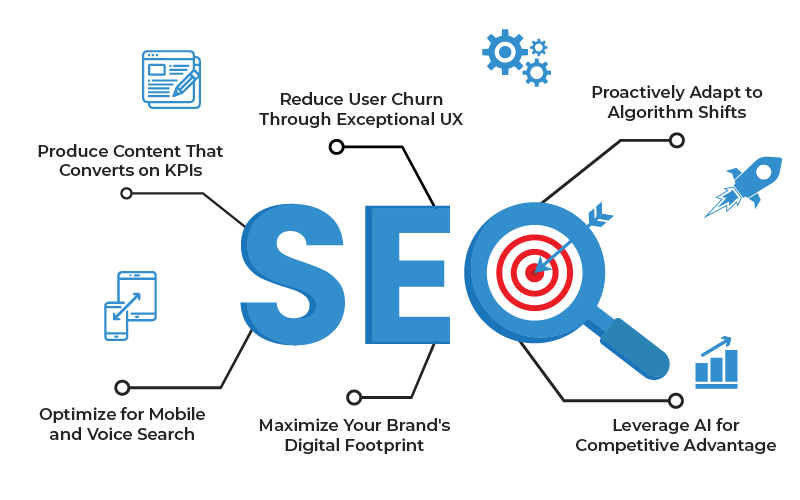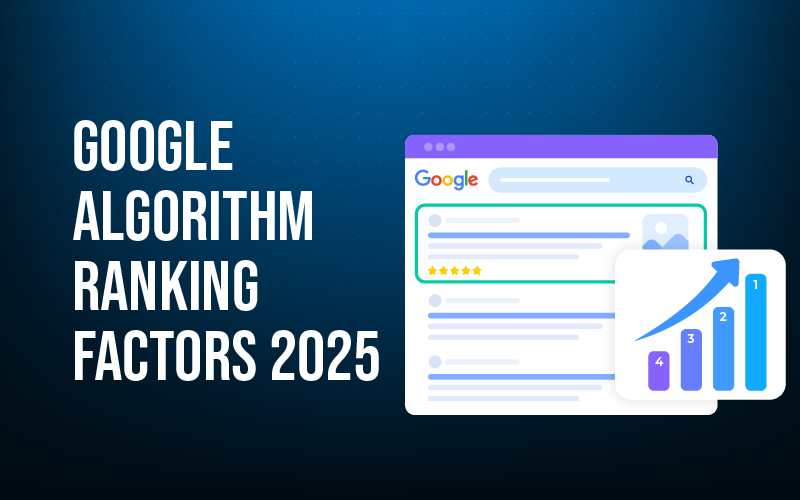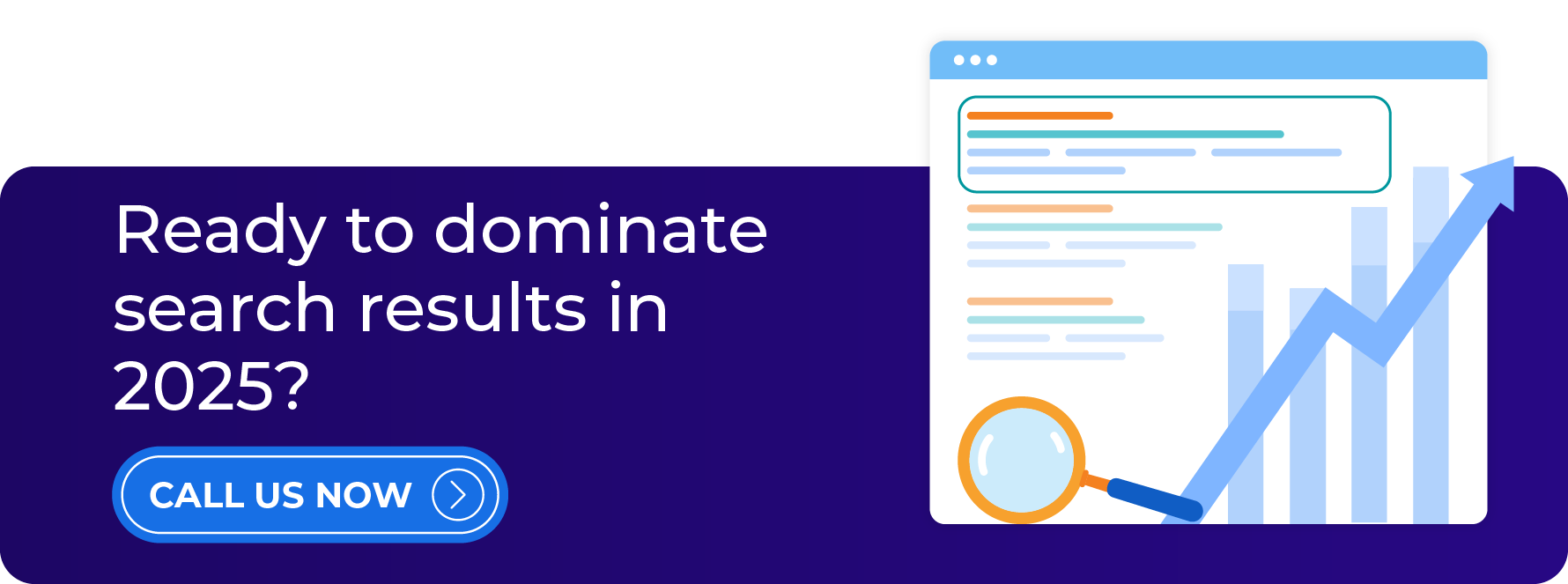You’ve probably noticed how quickly things shift online, right? Google’s search engine is always being tweaked and updated.
What did you notice last year? It might be completely different now. As we look ahead to 2025, one thing’s for sure: Google really wants to show people the most helpful, trustworthy, and easy-to-use search results. To keep up, we need to understand a few key things, including the crucial Google algorithm ranking Factors to Watch in 2025.
We’re talking about how AI is changing everything, that whole E-E-A-T thing (experience, expertise, authoritativeness, and trust), and making sure websites are actually enjoyable to use.
So, let’s get into what you need to know to make your content work in the search results of 2025.
Core Google Algorithm Updates & Trends

If you’ve been paying attention to Google lately, it’s pretty obvious that they’re very serious about making their search engine better. Think about all those updates they’ve rolled out over the past few years, like the ‘Helpful Content’ stuff and the constant core updates.
What they’re basically saying is, ‘Hey, focus on people!’ They keep hammering home the same point: create content that’s actually useful, that really answers what people are searching for, and that makes them trust you.
In 2023 and 2024, we witnessed a significant push towards rewarding expertise and experience, reflected in the evolution of E-A-T to E-E-A-T (Experience, Expertise, Authoritativeness, and Trustworthiness). Furthermore, Google’s increasing integration of AI, particularly with advancements in natural language processing and machine learning, has transformed how search queries are understood and results are delivered. This trend is only set to accelerate.
Key Ranking Factors to Watch in 2025
A. E-E-A-T & Authoritative Content

- Experience Matters More: Demonstrating firsthand experience through original research, case studies, and personal anecdotes will be paramount.
- Deep Expertise: Content should showcase in-depth knowledge and provide unique insights that go beyond surface-level information.
- Building Trust: Transparency, accuracy, and credible sources are non-negotiable. Verify your information and cite reputable references.
- Authoritative Backlinks: Quality over quantity remains crucial. Focus on earning backlinks from established and relevant websites.
B. User Experience (UX) & Core Web Vitals

- Mobile-First Indexing: Ensure your website is fully optimized for mobile devices.
- Core Web Vitals: Pay close attention to the Largest Contentful Paint (LCP), First Input Delay (FID), and Cumulative Layout Shift (CLS). Fast loading speeds and smooth user interactions are essential.
- Accessibility: Design your website with accessibility in mind, catering to users with diverse needs.
- Intuitive Navigation: Make it easy for users to find what they’re looking for. A clear site structure and logical navigation are key.
C. AI & Machine Learning’s Influence
- Semantic Search: Understand the intent behind search queries and create content that addresses those needs comprehensively.
- Personalized Search Results: Tailor content to cater to specific user segments and their search history.
- AI-Generated Content (with caution): While AI tools can assist in content creation, ensure human oversight to maintain quality, accuracy, and originality.
- Understanding Multimodal Search: As Google expands its capability to understand various media types, content creation will need to adapt.
D. Video & Multimedia Content
- Video Optimization: Optimize videos for search with relevant titles, descriptions, and tags.
- Interactive Content: Incorporate interactive elements like quizzes, polls, and 360-degree videos to enhance engagement.
- Podcast Integration: Leverage podcasts to reach a wider audience and provide valuable audio content.
- Visual Search: Optimize images for visual search by using descriptive alt text and high-quality visuals.
E. Local SEO & Proximity
- Google Business Profile Optimization: Ensure your GBP is accurate and up-to-date.
- Local Citations: Build consistent citations across relevant directories.
- Proximity-Based Search: Focus on optimizing for local search keywords and providing location-specific content.
- Reviews & Ratings: Encourage customers to leave positive reviews and actively manage your online reputation.
Actionable Strategies for 2025

Invest in High-Quality Content
Google is going to double down on content that’s helpful to people. Forget about just throwing keywords around and hoping for the best. We’re talking about creating stuff that really answers people’s questions, solves their problems, and gives them some ‘aha!’ moments. Do your research, get some real data, and even bring in some expertise. Go deep in topics, don’t just skim the surface. And mix it up!
Use videos, pictures, or whatever makes your content easier to understand. If you focus on making awesome content, not only will Google like you more, but people will trust you, and stick around longer.
Prioritize User Experience
Think of your website as a store. If it’s messy, hard to navigate, and takes forever to load, people are going to leave, right? That’s basically what Google thinks with user experience, or UX. It’s not just a nice-to-have any more, it’s a must-have for getting seen online. You need to check your website regularly, like giving it a good spring cleaning, to find and fix anything that can make people frustrated. Make sure it works great on phones, loads quickly, and is easy to get around.
Keep things simple, use clear buttons, and don’t bombard people with distractions. Those Core Web Vitals, the things that measure speed and smoothness? Google cares about those a lot.
Bottom line: If people have a good time on your website, Google will notice, they’ll stick around longer, and you’ll probably get more customers.
Stay Updated on Algorithm Changes
Google’s algorithm isn’t a static rulebook; it’s a relentless evolutionary force. Your strategy must evolve with it.
Think of it like this: you wouldn’t drive without checking the traffic, right? So, you need to follow the best SEO blogs, keep an eye on what Google itself says, and read industry news. Jump into online SEO groups, talk to other people in the field, and share what you’re learning.
And, of course, keep a close watch on how your website is doing, proactively working to improve its Google searchability. If something changes, you need to be ready to change too.
Basically, you’ve got to be proactive, not reactive. Knowing how those Google updates affect your particular area of business is crucial to staying on top of the game.
Embrace AI Tools (Responsibly)
Think of AI tools like having a smart assistant that can help you with a lot of grunt work. They can make finding search keywords, coming up with content ideas, and even drafting some text a whole lot faster. But here’s the thing: you can’t just let them run wild.
You’ve got to use them wisely. It’s like having a power tool – great when used right, but you can’t just blindly trust it. You absolutely need to have a human look over anything AI spits out, double-check it for accuracy, make sure it’s original, and that it actually sounds good.
AI can’t replace the human touch, creativity, or understanding of how people think. So, use AI to help you be more efficient, and give you a head start, but always remember to put your own stamp on it. And, of course, make sure you’re playing by Google’s rules.
Build a Strong Online Presence
Building a solid foundation with Google searchability is crucial, but it’s merely the starting point for a comprehensive online presence. Consider your online presence as you would your reputation in the physical world.
It’s a multifaceted entity. Beyond simply appearing in search results, you must actively engage on social media, participate in industry discussions, and cultivate relationships with key influencers. Maintaining consistent brand messaging across all platforms is paramount, ensuring a unified and recognizable brand personality.
And don’t ignore what people are saying about you! Respond to the reviews, good or bad, and fix any problems that arises. You want to be seen as a trustworthy and knowledgeable person in your space. This whole approach, this ‘holistic’ thing, it’s about building your brand into something people recognize and respect.
Optimize for Mobile and Voice Search:
Smartphones and voice assistants dominate how people access information. Therefore, a website’s ability to adapt to mobile devices and voice queries is no longer a luxury, but a necessity. Content should mirror natural conversation, directly addressing common questions. Long-tail keywords and conversational phrases are essential.
Implementing schema markup aids search engines in comprehending content context. This optimization directly impacts visibility, accessibility, and user engagement.
Conclusion
Google’s way of ranking websites isn’t going to stand still. It’s going to keep changing, which means we’ve got to be ready to change with it. You can’t just sit back and hope for the best. To really stay ahead, you’ve got to get what Google’s trying to do, you need to be serious about making really good content, and you’ve got to make sure people actually enjoy using your site.
A. Reiterate the importance of proactive SEO: It’s not just about fixing things after they break. It’s about seeing what’s coming and building something that lasts online.
B. Encourage readers to stay informed and adapt to changes: If you want to win at this SEO game, you’ve got to stay in the loop, be quick on your feet, and always be tweaking what you’re doing.
C. Offer a call to action (e.g., subscribe, share, comment): What do you see happening with Google’s search in 2025? Tell us in the comments!
D. Final thoughts on the future of Google’s algorithm: Google will continue to try to make search more personal, easier to use, and more helpful. If we focus on what users really want, create great content, and keep up with the technology, we’ll be in a good spot for whatever comes next.




